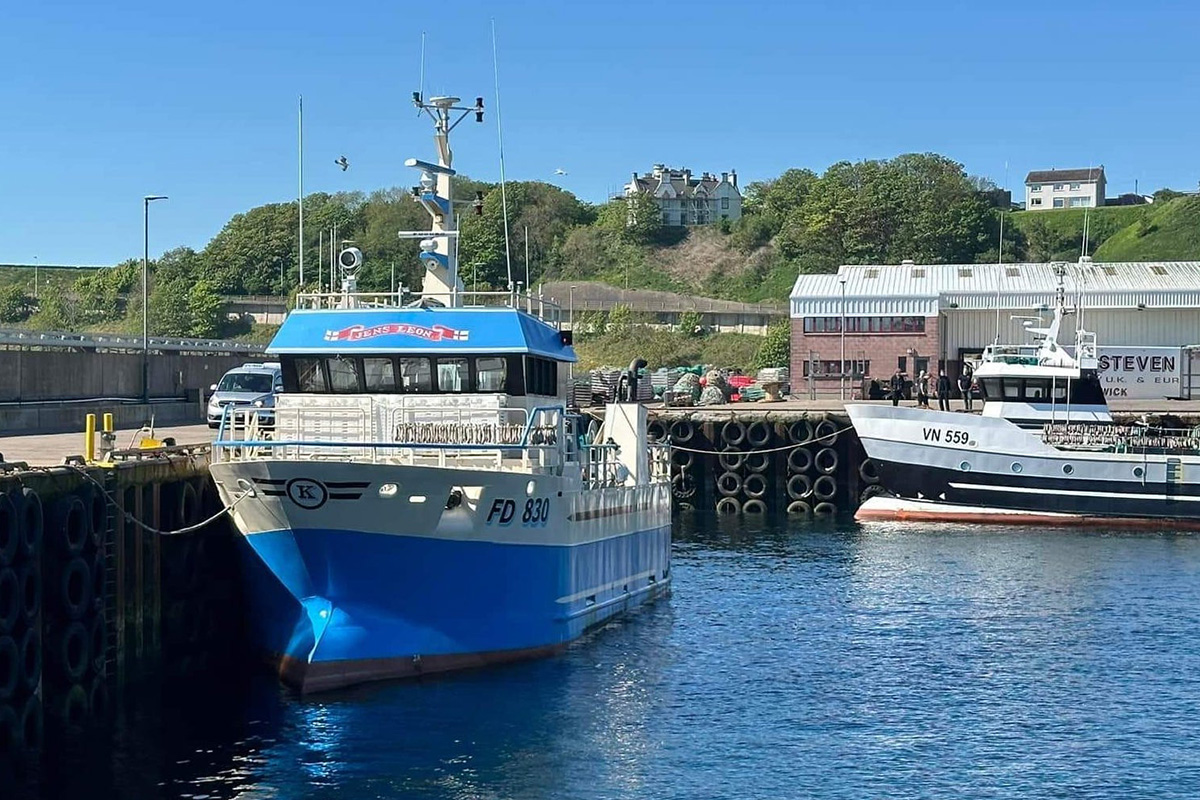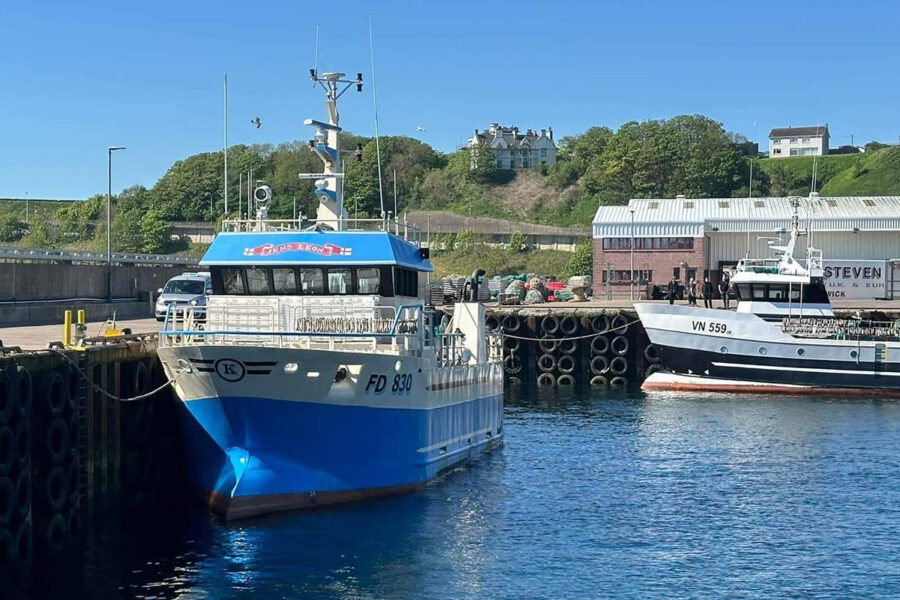The ongoing strike in Faroe saw a number of Faroese landings into Scrabster last week, following on from the first landing by the former Aalskere, now named Vesturvardi, the week before.
The landings come as evidence mounts that despite efforts by Faroese vessels to land catches direct to third countries, including Scotland, Denmark and Iceland, there has been some disruption to the normal supply of fish.
Martin Boyers, CEO of Grimsby Fish Market, told FN there had been some price increases at the Grimsby auction since the strike had started. “We’re seeing extra activity on the market from some Humber processors who tend to get the bulk of their supply direct from Faroese vessels, which has been containerised in Faroe, shipped to Scrabster on the ferry and then trucked down direct to the factories.
“I can only assume that their renewed interest in the fish on the market floor here, which is predominantly from Iceland, is because their normal supplies are not arriving.”
In North East Scotland, there has been some comment from a few Scottish skippers that Faroese landings there are impacting prices received by Scottish vessels, both at auction and with direct sales, though this is disputed by many in the value chain. The Faroese landings have also largely been of sizes and species that Scottish skippers are trying to avoid, because of quota availability, or that they are not taking as bycatch.
It is thought that the bulk of the Faroe landings have consigned fish direct under existing contracts to factories on the Humber or in North East Scotland, though FN understands that some has been sold direct through local sales channels to new customers.

Two Faroese vessels in Scrabster last week. The Jens Leon consigned fish to Peterhead market, whilst the Skalafossur, in the background, was reported to have sold its catch privately to a Broch processer. (Photo: Jim Cowie)
According to sales information available online, just one of the Faroese vessels landing in Scrabster, the 22m Jens Leon, has sent significant volumes of fish to Peterhead, consigning 381 boxes for auction.
Despite its relative proximity to the Faroese fleet, and the fact that a number of Faroese vessels have sailed to Hanstholm to land their catches direct into the EU market, Shetland has yet to see any landings. One local source claimed that concerns about the need to re-box and re-ice any Faroese fish landed, and the manpower commitments needed to ensure this was managed quickly and smoothly, was one reason why vessels had not opted to call in to Lerwick or Scalloway.
Although Faroe media reports that no end to the current strike is in sight, the potential for resolution of the pay dispute, and a rapid return to ‘normal’ fishing and sales arrangements, means that there can be no ongoing certainty for UK ports about future Faroese landings.
‘This proves the benefit of open auctions’
Martin Boyers said: “It is situations like this that show just how valuable a role fish auctions such as Grimsby, Peterhead and Brixham play.
“The majority of Faroese fish arriving on the Humber has bypassed the auction, with factories here choosing to buy on contract, and have fish containerised and sent down from Scrabster. Much of the Norwegian fish processed on the Humber is bought on contract, whilst the larger volumes of Icelandic fish continue to use the market to set a price for fish.
“In doing so, they provide a real service to direct buyers, setting a price that otherwise, without the markets, could see fish go the way of milk or cheese, and see producers strangled by the supermarkets on price, with no reference to what the real value of the product is.
“The figures bear out that the auctions will see both the highest prices paid for fish, benefiting the catching sector, as well as the lowest. Ironically, the low price is often caused by a glut of fish from the same countries, and salesmen who prefer direct sales, and then unload their surplus on the market – of course they will receive lower prices on the market with a sales strategy like that!
“What I hope fishermen learn, and remember, from this last couple of weeks is the absolute value to them of having competitive auctions that determine the real price and value of the fish they catch. Without us, everyone in the catching sector would suffer.”








